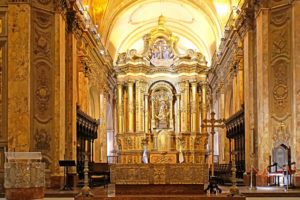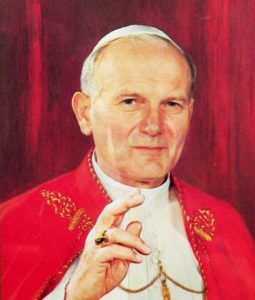Posted by Roberta Grimes • May 10, 2025 • 10 Comments
Jesus, The Teachings of Jesus, Understanding Reality
Morning has broken like the first morning.
Blackbird has spoken like the first bird.
Praise for the singing,
Praise for the morning,
Praise for them springing fresh from the world.
Sweet the rain’s new fall, sunlit from heaven.
Like the first dewfall on the first grass.
Praise for the sweetness of the wet garden
Sprung in completeness where His feet pass.
Mine is the sunlight!
Mine is the morning!
Born of the one light Eden saw play.
Praise with elation! praise ev’ry morning,
God’s recreation of the new day.
Morning has broken like the first morning.
Blackbird has spoken like the first bird.
Praise for the singing.
Praise for the morning.
Praise for them springing fresh from the world!
Eleanor Farjeon (1881 –1965), from “Morning Has Broken” (1931)
 History is written by its winners. And yet, how slim that margin of victory can be! Only consider for a moment how all the winning events of human history have happened, and often by sheerest happenstance, even some of them shaped by chance events of which we never were aware. And among the winners of the Christian religion’s very earliest history were the Councilors at the First Roman Council of Nicaea in the year 325 C.E. Those worthies first codified the transformation of a few select portions of the three-hundred-year-old Way of Jesus into the earliest form of what became the modern Christian religion, by order of the Roman Emperor Constantine. The Councilors cemented into place a few select dogmas as the new religion’s core of required beliefs, foremost among which were the fear- and guilt-based notions that Jesus’s death on the cross had been a sin-sacrifice, and that our afterlife carries with it the threat of eternal hellfire. It is important for us to note, however, that substitutionary atonement, in particular, never was taught, nor was it even imagined by Jesus.
History is written by its winners. And yet, how slim that margin of victory can be! Only consider for a moment how all the winning events of human history have happened, and often by sheerest happenstance, even some of them shaped by chance events of which we never were aware. And among the winners of the Christian religion’s very earliest history were the Councilors at the First Roman Council of Nicaea in the year 325 C.E. Those worthies first codified the transformation of a few select portions of the three-hundred-year-old Way of Jesus into the earliest form of what became the modern Christian religion, by order of the Roman Emperor Constantine. The Councilors cemented into place a few select dogmas as the new religion’s core of required beliefs, foremost among which were the fear- and guilt-based notions that Jesus’s death on the cross had been a sin-sacrifice, and that our afterlife carries with it the threat of eternal hellfire. It is important for us to note, however, that substitutionary atonement, in particular, never was taught, nor was it even imagined by Jesus.
 Let’s say that again! The core awful teaching of Roman Christianity, that Jesus died on the cross to save us from God’s judgment for our sins, was never said in the Gospels, never hinted at, and almost certainly never so much as even imagined by Jesus. He told me in April of 2022 when Thomas took me to visit Him in the astral plane that He had chosen to be crucified so He could rise from the dead for us and thereby prove to us that we will live forever. And that explanation for His crucifixion and resurrection frankly makes a lot more sense! If Jesus had been dying just as a sin-sacrifice, then He would not have needed to rise again three days later. In fact, His rising again would actually have damaged His value as a completed sin-sacrifice.
Let’s say that again! The core awful teaching of Roman Christianity, that Jesus died on the cross to save us from God’s judgment for our sins, was never said in the Gospels, never hinted at, and almost certainly never so much as even imagined by Jesus. He told me in April of 2022 when Thomas took me to visit Him in the astral plane that He had chosen to be crucified so He could rise from the dead for us and thereby prove to us that we will live forever. And that explanation for His crucifixion and resurrection frankly makes a lot more sense! If Jesus had been dying just as a sin-sacrifice, then He would not have needed to rise again three days later. In fact, His rising again would actually have damaged His value as a completed sin-sacrifice.
No, Jesus meant His crucifixion as a love-gift to us, but instead Constantine seized on it and gave it that entirely different meaning. Constantine’s barbaric and guilt-ridden interpretation of Jesus’s crucifixion was only one out of many new ideas in the vast cornucopia of fresh notions that had been developed by Jesus’s later followers in the rapidly spreading Way of Jesus after the Lord’s death and resurrection. Even the idea of a fiery hell never came from Jesus Himself! And none of these negative teachings would have survived as anything but fringe nonsense, if Constantine had not chosen each of them as especially powerful and scary, and therefore as concepts that he wanted to include in the brand-new Christian religion that he was developing. So history’s winners in this case chose those ideas to be at the center of their new Christian religion as they first put it together. And that is where those ideas remain. What began as mere random ideas that never came from Jesus are held as holy and sacred Christian truths to this day.
 Thomas and I are writing this just as the Vatican is choosing Pope Leo XIV, who is to be the 267th Pope of the Catholic Church. The current news is all about how long this sacred papal tradition is, how it traces right back to Saint Peter himself, and how that first Pope, Peter, was a fisherman who, with his brother, Andrew, long ago was called by Jesus Himself to come follow Him and become “fishers of men.” Like nearly all of Jesus’s Disciples, the Lord’s much-beloved friend Peter was later martyred in Peter’s great old age. When the Romans sought to crucify Peter, the old man demanded that he must be crucified hanging upside-down, since he thought himself unworthy to be crucified the same way that Jesus had been crucified nearly four decades before, hanging right-side-up. And legend has it that when the Romans later tried to grant the old man a reprieve from his long and excruciating upside-down dying, Peter refused it, and he insisted that he be left on his cross until he died. But we cannot help wondering now what Peter, Andrew, Thomas, John, and the other Disciples who once sat at the actual feet of Jesus must think of all the fussy Medieval pomp and ritual of this choosing of Peter’s latest successor? Do they imagine that all this Catholic formality has anything at all to do with their own earthly lives with Jesus, and their original mission of spreading the Lord’s sacred words?
Thomas and I are writing this just as the Vatican is choosing Pope Leo XIV, who is to be the 267th Pope of the Catholic Church. The current news is all about how long this sacred papal tradition is, how it traces right back to Saint Peter himself, and how that first Pope, Peter, was a fisherman who, with his brother, Andrew, long ago was called by Jesus Himself to come follow Him and become “fishers of men.” Like nearly all of Jesus’s Disciples, the Lord’s much-beloved friend Peter was later martyred in Peter’s great old age. When the Romans sought to crucify Peter, the old man demanded that he must be crucified hanging upside-down, since he thought himself unworthy to be crucified the same way that Jesus had been crucified nearly four decades before, hanging right-side-up. And legend has it that when the Romans later tried to grant the old man a reprieve from his long and excruciating upside-down dying, Peter refused it, and he insisted that he be left on his cross until he died. But we cannot help wondering now what Peter, Andrew, Thomas, John, and the other Disciples who once sat at the actual feet of Jesus must think of all the fussy Medieval pomp and ritual of this choosing of Peter’s latest successor? Do they imagine that all this Catholic formality has anything at all to do with their own earthly lives with Jesus, and their original mission of spreading the Lord’s sacred words?
 Because history is written by its winners, we likewise assume that even the sideline details of our written history could have happened in no other way. But of course, that is not true at all. Millions of the followers of the Way of Jesus were murdered by Constantine’s legions as he consolidated his power over his narrow and limited version of his new Christianity. In order to protect what he was building, Constantine felt the need to destroy all other versions of the Way; and those early followers of Jesus that he did not succeed in murdering, he drove off into the deserts and into the wilderness. What Constantine never knew, however, was that two people who were not then in bodies, people that you and I know well, were also in attendance in 325 C.E. as those First Nicaean Councilors were constructing what would become the Christian Bible. Thomas and Jesus were especially obsessed with making certain that the Councilors chose the right versions of the Gospels for Jesus’s purposes. And while Constantine sought to insert his own ideas, our Friends were whispering in receptive ears that any changes the Councilors made must be placed only at the backs of those four chosen Gospels. We smile now to see the results of the Nicaean Councilors’ work, as we pluck their obviously later-added tidbits right back out again. So as the First Nicene Councilors did their Emperor’s bidding, so Jesus and Thomas were busy about their own work. Oh, and once Constantine had created his Christian religion, that religion then was used by others to do some horrible, truly monstrous things to literally millions of people, including but not limited to Inquisitions and Crusades, so Jesus spent most of the next seventeen hundred years working in his afterlife hospital gardens and spiritually and psychologically healing all those millions of victims. Despite all the pain that doing this work must have caused Him, Thomas tells me that never once has he heard his precious Friend complain, or show anger or anything but infinite patience and love through it all.
Because history is written by its winners, we likewise assume that even the sideline details of our written history could have happened in no other way. But of course, that is not true at all. Millions of the followers of the Way of Jesus were murdered by Constantine’s legions as he consolidated his power over his narrow and limited version of his new Christianity. In order to protect what he was building, Constantine felt the need to destroy all other versions of the Way; and those early followers of Jesus that he did not succeed in murdering, he drove off into the deserts and into the wilderness. What Constantine never knew, however, was that two people who were not then in bodies, people that you and I know well, were also in attendance in 325 C.E. as those First Nicaean Councilors were constructing what would become the Christian Bible. Thomas and Jesus were especially obsessed with making certain that the Councilors chose the right versions of the Gospels for Jesus’s purposes. And while Constantine sought to insert his own ideas, our Friends were whispering in receptive ears that any changes the Councilors made must be placed only at the backs of those four chosen Gospels. We smile now to see the results of the Nicaean Councilors’ work, as we pluck their obviously later-added tidbits right back out again. So as the First Nicene Councilors did their Emperor’s bidding, so Jesus and Thomas were busy about their own work. Oh, and once Constantine had created his Christian religion, that religion then was used by others to do some horrible, truly monstrous things to literally millions of people, including but not limited to Inquisitions and Crusades, so Jesus spent most of the next seventeen hundred years working in his afterlife hospital gardens and spiritually and psychologically healing all those millions of victims. Despite all the pain that doing this work must have caused Him, Thomas tells me that never once has he heard his precious Friend complain, or show anger or anything but infinite patience and love through it all.
 And it is time now also to point out that where the great service that Jesus came to earth to perform for humankind is concerned, things could have turned out very differently! If the Emperor Constantine never had believed as he looked up at the sky one day that he was seeing a cross, and if he had not then imagined that he was hearing the words, “by this sign you shall conquer,” then might he ever have had even the slightest interest in creating a Christian religion in the first place? Well, no, of course not. So let’s pretend now that Constantine never started his version of Christianity. Let’s imagine that the winner of this greatest of all spiritual historical battles was not some Roman emperor, but instead perhaps instead it was Jesus.
And it is time now also to point out that where the great service that Jesus came to earth to perform for humankind is concerned, things could have turned out very differently! If the Emperor Constantine never had believed as he looked up at the sky one day that he was seeing a cross, and if he had not then imagined that he was hearing the words, “by this sign you shall conquer,” then might he ever have had even the slightest interest in creating a Christian religion in the first place? Well, no, of course not. So let’s pretend now that Constantine never started his version of Christianity. Let’s imagine that the winner of this greatest of all spiritual historical battles was not some Roman emperor, but instead perhaps instead it was Jesus.
Jesus tells us now that He came to earth when and as He did with three purposes in mind. And He was well on His way toward accomplishing those three goals for us by means of His rapidly-spreading Way when in the year 312 C.E. the Roman Emperor Constantine derailed His progress. Here is what Jesus tells us that He came to earth to accomplish:
 Jesus’s teachings on earth as they are preserved for us in the Biblical Gospels were specifically tailored to accomplish these objectives. And understanding that explains so much! Of course, the words of Jesus are not organized by topic in the Gospels, but when we know what we are looking for, His words on each topic are easy to ferret out. Before we look at them, though, it is crucial that we realize that Jesus, as an aspect of the Godhead Itself, came to earth knowing everything that you and I know, and even more, about two crucial facts:
Jesus’s teachings on earth as they are preserved for us in the Biblical Gospels were specifically tailored to accomplish these objectives. And understanding that explains so much! Of course, the words of Jesus are not organized by topic in the Gospels, but when we know what we are looking for, His words on each topic are easy to ferret out. Before we look at them, though, it is crucial that we realize that Jesus, as an aspect of the Godhead Itself, came to earth knowing everything that you and I know, and even more, about two crucial facts:
With this quick preface, let’s look now at how Jesus spoke to His contemporaries during His three years of active teaching as He tried to achieve His objectives as we have summarized them above.
 What surprises us most is the fact that Jesus was so deeply antithetical to religious leaders, and to all religions. OMG, you get the sense that he literally hated both religions and clergymen! Our beloved Wayshower taught us to love endlessly. He lived the very model of love, while all religions are essentially fear-based, just as Constantine built his new Christian religion around just fear-based teachings. Here are some samples of what Jesus said against the clergy of His day:
What surprises us most is the fact that Jesus was so deeply antithetical to religious leaders, and to all religions. OMG, you get the sense that he literally hated both religions and clergymen! Our beloved Wayshower taught us to love endlessly. He lived the very model of love, while all religions are essentially fear-based, just as Constantine built his new Christian religion around just fear-based teachings. Here are some samples of what Jesus said against the clergy of His day:
“Beware of the scribes who like to walk around in long robes, and like respectful greetings in the market places, and chief seats in the synagogues and places of honor at banquets, who devour widows’ houses, and for appearance’s sake offer long prayers; these will receive greater condemnation” (MK 12:38-40). And, “Woe to you religious lawyers! For you have taken away the key of knowledge; you yourselves did not enter (the kingdom of heaven), and you hindered those who were entering” (LK 11:52). “But woe to you, scribes and Pharisees, hypocrites, because you shut off the kingdom of heaven from people; for you do not enter in yourselves, nor do you allow those who are entering to go in” (MT 23:13). “Neglecting the commandment of God, you hold to the tradition of men… You are experts at setting aside the commandment of God in order to keep your tradition” (MK 7:8-9). “Why do you transgress the commandment of God for the sake of your tradition?… You hypocrites! Rightly did Isaiah prophesy of you: ‘This people honors me with their lips, but their hearts are far away from me. But in vain do they worship me, teaching as doctrines the precepts of men’” (MT 15:3-9).
WOW. Anyone who thinks that Jesus had anything but the rankest disdain for religions and for their clergymen simply has not read the Gospels closely!
Jesus urged the rest of us to establish a private relationship with God. He said, “Beware of practicing your righteousness before men to be noticed by them; otherwise, you have no reward with your Father who is in heaven. So, when you give to the poor, do not sound a trumpet before you, as the hypocrites do in the synagogues and in the streets, so that they may be honored by men. Truly I say to you, they have their reward in full. But when you give to the poor, do not let your left hand know what your right hand is doing, so that your giving will be in secret; and your Father, who sees what is done in secret, will reward you.
“When you pray, you are not to be like the hypocrites; for they love to stand and pray in the synagogues and on the street corners so that they may be seen by men. Truly I say to you, they have their reward in full. But you, when you pray, go into your inner room, close your door and pray to your Father who is in secret, and your Father who sees what is done in secret will reward you” (MT 6:1-6).
Jesus’s teachings on love and forgiveness are the core of what He brought to us. And even two thousand years later, His words still sing! Just open your heart….
“‘You shall love the Lord your God with all your heart, and with all your soul, and with all your mind.’ This is the great and foremost commandment. The second is like it, ‘You shall love your neighbor as yourself.’ On these two commandments depend the whole Law and the Prophets” (MT 22:37-40). “But love your enemies, and do good, and lend, expecting nothing in return; and your reward will be great, and you will be sons of the Most High; for He Himself is kind to ungrateful and evil men. Be merciful, just as your Father is merciful” (LK 6:35-36).
“You have heard that it was said, ‘You shall love your neighbor and hate your enemy.’ But I say to you, love your enemies and pray for those who persecute you, so that you may be sons of your Father who is in heaven; for He causes His sun to rise on the evil and the good, and sends rain on the righteous and the unrighteous. For if you love those who love you, what reward do you have? Do not even the tax collectors do the same? If you greet only your brothers, what more are you doing than others? Do not even the Gentiles do the same? Therefore you are to be perfect, as your heavenly Father is perfect” (MT 5:43-48).
Peter asked him, “Lord, how often shall my brother sin against me and I forgive him? Up to seven times?” Jesus said to him, “I do not say to you, up to seven times, but up to seventy times seven” (MT 18:21-23). “Do not judge, and you will not be judged; and do not condemn, and you will not be condemned; pardon, and you will be pardoned. Give, and it will be given to you. They will pour into your lap a good measure—pressed down, shaken together, and running over. For by your standard of measure it will be measured to you in return” (LK 6:37-38).
 It is clear to us now that Jesus never set out to start any religion! No, what He came to teach us to do was to begin a new spiritual Way for people to relate to God and one another that would empower us to grow rapidly toward spiritual perfection. So, let us imagine now that Jesus’s love-filled Way was never brutalized. Perhaps then Jesus and His Disciples and the millions who were their first followers were instead among history’s greatest Winners! Imagine that instead, if you can. And next week, let’s consider how that might have gone….
It is clear to us now that Jesus never set out to start any religion! No, what He came to teach us to do was to begin a new spiritual Way for people to relate to God and one another that would empower us to grow rapidly toward spiritual perfection. So, let us imagine now that Jesus’s love-filled Way was never brutalized. Perhaps then Jesus and His Disciples and the millions who were their first followers were instead among history’s greatest Winners! Imagine that instead, if you can. And next week, let’s consider how that might have gone….
(Many photos are from Vecteezy.com)
Roberta, your words of Truth, expressed so simply and beautifully, strike home to those who have ears to hear. Jesus and Thomas chose well their messenger for our day and time. Thank you.
Oh my very dear Janelle, what a very sweet and lovely thing for you to say. Thank you, my darling! We do really try!
Jesus having disdain for religion and the clergy must have initially seemed very off-putting for His early followers. Up to that time, they wouldn’t have been shown that a personal relationship with God was possible. They would have been guided in their religious practices by priests or other intermediaries in temple settings, paying tithes and making other offerings. Being shown that God is Spirit and can be spoken to directly, in private, was both rebellious and groundbreaking! When unhelpful religious dogma is finally pushed aside it is very liberating and encouraging. What is interesting is how quickly Constantine realized that The Way wasn’t attuned to his purpose of conquest, and that the followers of the Way of Jesus were unsuitable for subjugation and being turned into fearful and compliant subjects of the empire.
Constantine also knew that ritual and fear-based dogma were practices and ideas that would take hold in people not educated in The Way. They had seen that show before in other religions and
wouldn’t have been surprised by it. Solemnity and mysterious priestly practices can be powerful signs to parishioners. In any case, Constantine’s Christianity, while formulated to serve a purpose Jesus didn’t ascribe to, DID accurately preserve enough of His teachings to make an enormous difference in the world.
The challenge we face is that the inaccurate message of Jesus being seen as a “sin sacrifice” and that we are all worthless sinners bound for eternal damnation without being “saved” is a message that needs radical revision. Getting “buy-in” on this shift in thinking is where the potential difficulties arise!
Wow, my very dear Mark, this is all wonderfully said! I guess I hadn’t much looked at it the way that you have, and I think you’re right; possibly many of the common people would have found the way that Jesus was battling the clergy disruptive, at least at first. His ideas were so radical!.
Dearest Roberta,
I’ve always gone to the source if ever I have researched something. If I’ve looked at a philosophy, whether secular or religious, I’ve inevitably studied what the philosopher said directly.
Socrates (recorded by Plato) taught so much and his own dissertation is his philosophy. Yet in every century after his demise, scholars have written about him, his ideas and his deeds. However they inevitably provided their own extrapolation of what he meant. Intellectuals ‘pile on.’ They can’t help themselves.
Theological scholars expound ideas about Jesus, making classifications, sets and subsets of His ideas, when they were so simply and passionately expressed originally. The end results of human tampering and intellectual complications are ultimately distortions. Many of these Christian theological distortions would be just plain absurd if they weren’t so dangerous. (Crusades anyone?)
To put it another way, complex and rigid dogma functions as a ‘middle man’ between Jesus and each devoted follower. It stands as an obstacle to the sacred, internal relationship.
I’ve learned to keep away from the ‘middle man’, as it were. It’s the middle man who spoils everything. (In fact, any good idea can and will be ruined by human beings if they are left with it for too long.) Roberta, I ask myself: How did we get from the Way of Jesus to Calvinism?
Who are the middle men who have twisted the gentle, life philosophy of Jesus into a guilt, fear and hellfire religion? Who dared to turn the happy Way of loving, (pre-Nicaea) Nazarene communities into the rigid hierarchy of the Catholic Church? We all know the answer; it was Emperor Constantine and his cronies. And are they not just glorified middle men who inserted themselves between every believer and the Lord ??
So it just makes sense to go straight to Jesus, to His Gospels. To cultivate a personal relationship with Him in our hearts and minds is the answer. I’m not going to let any structured and dogmatic Church be an obstructive middle man between me and Our Lord. Far better is the inner, intensely personal, purely Spirit-based relationship. ❣️🙏🏼🌅
Efrem,
Very nicely stated! I agree completely. Some practices, such as intercessionary prayers for the dead, confession of “sins” to another human being, telling parents their innocent children will not enter Heaven if they’re not baptized, are but a few examples of religious practice gone awry.
Thank you Mark P,
Telling people that an unbaptized infant will enter a limbo state (?) is quite chilling. It’s a clear example of scaremongering to keep people obeying the clergy at all costs.
Though, of course I’m not implying that people shouldn’t go to a more loving, more enlightened church. I’m just against awful dogma; I’m not against faith based communities.. 😊
Hi Efrem,
This happened to me when I was a youngster. My mom sent me to church and I did everything I could to not go. I noticed some of the rules would change and that didn’t make sense. Why would it be against God to take birth control pills and then be ok to take them later on? Anyway, I finally got my way and could stop going to church. They told my mom that I wouldn’t go to heaven because of it. I found the church, at least the one we went too, to be pure fear mongering.
Luckily it never affected us as we weren’t devoted like so many.
Hi Thomas,
Heck, you were told that you wouldn’t go to Heaven because you stopped attending church!?!
I’m sorry you endured such cruel judgment from mere mortals at church. It is an attack on someone’s self-esteem to tell them God will reject them. It is enough to really mess someone up inside. 😣
I’m glad you were able to throw off these awful, baseless judgements.
One thing I never do is let any human being stand between myself and God. So glad you left that place.
“One thing I never do is let any human being stand between myself and God. So glad you left that place.”
I feel the same way brother.
I try not to take it personally. I tend to think they truly believe what they are saying. I’ve had conversations with a few “true believers” in past years and they tell me I am wrong and being misled by not believing what they believe. I do think they are trying to help.